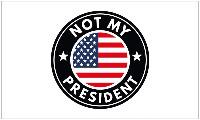- Posts: 4749
- Thank you received: 43
Impeachment proceedings against Trump
- Pony Soldier
-

- User is blocked
-

Every defendant is presumed innocent unless and until proven guilty.
Also:
And as set forth in the report, after that investigation, if we had had confidence that president clearly did not commit a crime, we would have said so we did not, however, make a determination as to whether the president did commit a crime
Which is it Mueller, you in-American traitor??
Please Log in or Create an account to join the conversation.
- ScienceChic
-
 Topic Author
Topic Author
- Mountain Champion
-

- Posts: 15746
- Thank you received: 320
Lindsey Graham in 1998: Ignoring Subpoenas Impeachable - Video
Daniel Moritz-Rabson | 4/26/2019
Senator Lindsey Graham, a close ally of President Donald Trump, once said that a president's refusal to comply with congressional oversight was an impeachable offense.
In an unearthed video from December 1998 circulating on Twitter on Friday, the South Carolina legislator passionately states that Richard Nixon could have been impeached for failing to comply with subpoenas from Congress.
"The day Richard Nixon failed to answer that subpoena is the day he was subject to impeachment because he took the power from Congress over the impeachment process away from Congress, and he became the judge and jury," Graham said two decades ago.
President Trump said earlier this week that he would not comply with Congressional attempts to question administration officials.
"We’re fighting all the subpoenas," Trump told reporters on Wednesday.
His remarks came after the Treasury Department failed to meet the deadline from the Ways and Means Committee to turn over several years of Trump's personal and business tax documents.
Administration figures also said this week Trump would claim executive privilege to block ex-White House Counsel Don McGahn from testifying before Congress.
Trump ally Lindsey Graham once said a president ‘doesn’t even have to be convicted of a crime’ to be impeached - Video
Emily Shugerman, New York @eshugerman
Wednesday 22 August 2018
“You don’t even have to be convicted of a crime to lose your job in this constitutional republic, if this body determines that your conduct as a public official is clearly out of bounds in your role,” Mr Graham said at the time.
He added: “Impeachment is not about punishment. Impeachment is about cleansing the office. Impeachment is about restoring honour and integrity to the office.”
High Crimes and Misdemeanors
The U.S. Constitution provides impeachment as the method for removing the president, vice president, federal judges, and other federal officials from office.
The impeachment process is political in nature, not criminal. Congress has no power to impose criminal penalties on impeached officials. But criminal courts may try and punish officials if they have committed crimes.
The Constitution sets specific grounds for impeachment. They are “treason, bribery, and other high crimes and misdemeanors.” To be impeached and removed from office, the House and Senate must find that the official committed one of these acts.
What are “high crimes and misdemeanors”? On first hearing this phrase, many people probably think that it is just an 18th century way of saying “felonies and misdemeanors.” Felonies are major crimes and misdemeanors are lesser crimes. If this interpretation were correct, “high crimes and misdemeanors” would simply mean any crime. But this interpretation is mistaken.
Impeachment - History of the United States House of Representatives
The Constitution gives the House of Representatives the sole power to impeach an official, and it makes the Senate the sole court for impeachment trials. The power of impeachment is limited to removal from office but also provides for a removed officer to be disqualified from holding future office. Fines and potential jail time for crimes committed while in office are left to civil courts.
What counts as a high crime or misdemeanor for impeachment? Justin Amash got it right
By Louis Jacobson on Wednesday, May 29th, 2019
Rep. Justin Amash of Michigan broke with his fellow Republicans in a series of tweets that suggested President Donald Trump might deserve impeachment by the House.
One of Amash’s tweets caught our eye, because it addressed the constitutional definition of impeachable offenses.
In his tweet, Amash noted that the definition of "high crimes and misdemeanors" in the Constitution is relatively fluid, but that it has generally been seen as a breach of the public trust:
"In fact, ‘high Crimes and Misdemeanors’ is not defined in the Constitution and does not require corresponding statutory charges. The context implies conduct that violates the public trust—and that view is echoed by the Framers of the Constitution and early American scholars."
"Now, more than ever, the illusions of division threaten our very existence. We all know the truth: more connects us than separates us. But in times of crisis the wise build bridges, while the foolish build barriers. We must find a way to look after one another as if we were one single tribe.” -King T'Challa, Black Panther
The truth is incontrovertible. Malice may attack it. ignorance may deride it, but in the end, there it is. ~Winston Churchill
Please Log in or Create an account to join the conversation.
- Pony Soldier
-

- User is blocked
-

- Posts: 4749
- Thank you received: 43
BTW quoting Lindsay Graham to me is about as useful as quoting Bozo the clown. He’s been on both sides of every issue for years. I live in SC so I know how he jumps in on the popular side right before election time. He’s a swamp creature. I don’t know much about Amash but tend to think he’s trying to do what he thinks is right. I wish your guys would just get on with impeachment. It will hand Trump 2020 on a silver platter. “See!?!?!? Witch hunt!!!”
Please Log in or Create an account to join the conversation.
- homeagain
-

- Mountain Legend
-

- Posts: 12746
- Thank you received: 173
HERE ARE THE FACTS.......CONGRESS IS WHERE THE BUCK STOPS
Please Log in or Create an account to join the conversation.
- homeagain
-

- Mountain Legend
-

- Posts: 12746
- Thank you received: 173
HERE IS ANOTHER PERSPECTIVE......WAKEUP.....PER MUELLER
Please Log in or Create an account to join the conversation.
- ramage
-

- Mountain Legend
-

- Posts: 4388
- Thank you received: 94
"A key witness in former special counsel Robert S. Mueller III’s investigation of Russian election interference has been charged with transporting child pornography last year, according to court documents.
George Nader, who has a previous conviction on such charges, was charged in federal court in Virginia and is expected to make an initial court appearance in New York.
Nader played an unusual role as a kind of liaison between Trump supporters, Middle East leaders and Russians interested in making contact with the incoming administration in early 2017.
Officials said Nader, 60, was charged by criminal complaint over material he was traveling with when he arrived at Washington Dulles International Airport on Jan. 17, 2018, from Dubai. At the time, he was carrying a cellphone containing visual depictions of minors engaged in sexually explicit conduct, officials said. The charges were unsealed after his arrest Monday morning at John F. Kennedy International Airport in New York.
Please Log in or Create an account to join the conversation.
- chrisd3711
-

- Tourist
-

- Posts: 17
- Thank you received: 13
Please Log in or Create an account to join the conversation.
- Brandon
-

- User is blocked
-

- Posts: 580
- Thank you received: 10
chrisd3711 wrote: And what do these charges have to do with his credibility as a witness?
They reinforce it. The trump family attracts scum.
Please Log in or Create an account to join the conversation.
- homeagain
-

- Mountain Legend
-

- Posts: 12746
- Thank you received: 173
Please Log in or Create an account to join the conversation.
- ScienceChic
-
 Topic Author
Topic Author
- Mountain Champion
-

- Posts: 15746
- Thank you received: 320
Adam Klasfeld: Developing Cohen Story - Twitter ThreadGood morning from New York.
A federal judge issues his ruling on Jeffrey Epstein’s bail application in court at 11:30 a.m. EDT.
Michael Cohen’s search warrant materials related to a closed campaign-finance probe to be unsealed at 11 a.m.
Covering both live for @CourthouseNews.
Show this thread
Michael Cohen Files Implicate Trump, Hope Hicks and David Pecker
By Adam Klasfeld, July 18, 2019
Sunlight Coming to Michael Cohen Campaign Finance InfoMANHATTAN (CN) – When the first batch of Michael Cohen search-warrant materials became public, the files disclosed evidence that President Trump’s former fixer secretly worked for a foreign government.
The new materials released on Thursday proved no less significant, detailing the actions Cohen took after the release of the “Access Hollywood” video threatened to derail Trump’s campaign. The day after the release, according to the warrants, Cohen exchanged a “series of calls, text messages and emails” with Trump; his then-press secretary Hope Hicks; the National Enquirer’s David Pecker; and Stormy Daniels’ lawyer Keith Davidson.
By Adam Klasfeld, July 17, 2019
Cohen WarrantsMANHATTAN (CN) – The first time a tranche of search warrants against former Trump fixer Michael Cohen became public, U.S. prosecutors aggressively redacted those materials to protect what was then an ongoing campaign-finance probe.
Announcing that investigation’s end, a judge ordered prosecutors on Wednesday to quickly disclose new information about how Cohen paid two women to silence their stories about supposed affairs with President Donald Trump.
“The campaign finance violations discussed in the materials are a matter of national importance,” U.S. District Judge William H Pauley III wrote. “Now that the government’s investigation into those violations has concluded, it is time that every American has an opportunity to scrutinize the materials.”
Previous posts in this topic about Michael Cohen
#362 November 29, 2018
#370 December 4, 2018
#373 December 6, 2018
#375 December 7, 2018
#377 December 27, 2018
#392 February 27, 2019 at 0830
#393 February 27, 2019 at 1104
#395 February 27, 2019 at 1450
#398 February 27, 2019 at 1746
#400 February 27, 2019 at 1840
"Now, more than ever, the illusions of division threaten our very existence. We all know the truth: more connects us than separates us. But in times of crisis the wise build bridges, while the foolish build barriers. We must find a way to look after one another as if we were one single tribe.” -King T'Challa, Black Panther
The truth is incontrovertible. Malice may attack it. ignorance may deride it, but in the end, there it is. ~Winston Churchill
Please Log in or Create an account to join the conversation.







